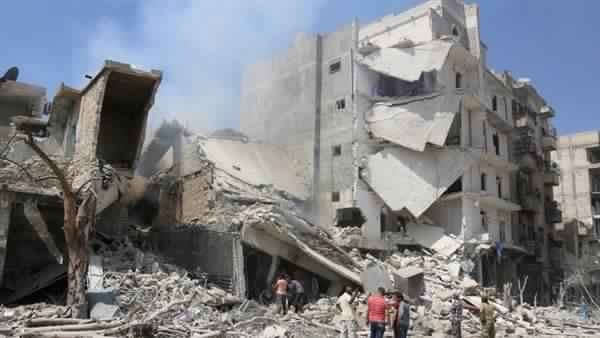Darussalam and Dar al-Harb

In Islamist literature, Darusslam/Dar al-Islam, or "territory of
peace" is the name for those territories where Muslims are in charge and
enforce Islamic law, even when the majority of the population are not Muslims.
On the other hand, Dar al-Harb,
or "territory of war" is the name for countries ruled by non-Muslims,
countries where the law of God is not observed or countries where Muslims are a
minority, not ruling the country.
It is not categorically and unequivocally stipulated in either the Quran
or the Sunnah (Traditions of Prophet Muhammad, PBUH) that the world be divided
into Dar al-Islam/Darussalam and Dar al-Kufr/Dar al-Harb. These terms emerged
only in the days of the Umayyad dynasty,originating from the teachings of Abu
Hanifa al-Nu'man, 1000 years after the Hijra (migration of prophet Muhammad to
Yathrib).
The lack of a clear formulation of this concept, in sacred texts,
resulted in a conflict of opposed ideas among scholars of Islam, especially
when a number of contemporary scholars stated that the United Nations charter
considers every country in the world a Darussalam, or a territory of peace.
The great works of Fiqh, considered as main reference for Takfiris
(Muslims who accuse other Muslims or adherents of Abrahamic religions of
apostasy) base their condemnation of a territory as a Dar al-Harb on three
conditions; first, it should be adjacent to a territory of war, not separated
from it by a Muslim country; second, that no Muslim in that country is safe in
his practice of Islam, or a Dhimmi ( a member of the People of the Book), is safe in the
practice of his faith; third, that the rules of Shirk(disbelief) are prevalent.
In his magnum opus of Takfirism
"The Totality of Fatwas", Ahmed Ibn Taymiyyah (1263-1328) said :"to
say that a certain territory is a territory of disbelief, a territory of Islam,
or a territory of impiety does not mean that such classification will be
permanent ; this is changeable : a territory inhabited by the pious is the
territory of the Awliyyau Allah (the proteges of Allah), at the time.
According to Ibn Taymmiyyeh, belief and disbelief, piety and impiety,
may exist, side by side, in the same territory. This was the case in Mardin (in
South Turkey), Ibn Taymiyyah's birth place, that was a Muslim territory
conquered by non- Muslim invaders.
Terrorist organizations used, or rather abused, the age-old differences
over these concepts, claiming that Muslim countries are territories of
disbelief, territories of war, because its rulers, allegedly, do not apply
Islamic law, in spite of the fact that Muslim practices are prevalent in those
countries. This resulted in terrorists allowing themselves to kill Muslims, rob
them of their properties, and rape their women, calling this savagery a form of
Jihad (Holy War), although Modern Muslim Fiqh asserts that a Muslim country
conquered by infidels does not become a Dar al-Harb as long as Islam continues
to be practiced there.
Abu Omar al-Baghdadi, ex-commander of Daesh (ISIS) said in 2007 ;
"We believe that a country where the rules of disbelief are superior to
those of Islam is a Dar al-Kufr". He applied this rule to our times by
saying that "As the rules now dominant in all Muslim countries are the
rules and the laws of Taghut (an authority that rebels against God and
transgresses his will), we condemn all rulers of such countries as apostates
and prioritize war against them over war against Crusading occupiers".
He went on to say, oxymoronically, that"It does not follow that the
inhabitants of such countries are Kafirs". If the rule is sound, what is
the point in designating such countries as Dar al-Kufr as long as its
inhabitants are not to be considered Kafirs?
Abu Muhammad al-Maqdisi, one of the theorists of " Jihadist
Salafism" went even further, in his book "Contemplating the Fruits of
Jihad", to claim that Mecca is a
Dar al-Kufr, a Dar al-Harb, saying" These days, the whole world is a Dar
al-Kufr, where Muslims are downtrodden, all Muslim territories are usurped and
occupied, either by Kafirs coming from abroad, or by domestic Kafirs, loyal to
the foreign Kafirs. Neither Mecca or Medina are exceptions to this rule.
Ex-spokesman of Daesh, Abu
Muhammad al-Adnani called upon his followers to "liberate" Mecca and
Medina, in a statement titled "and HE will establish for them their
religion-which He has approved for them", saying" March towards
Baghdad of the Caliphate…And verily you have an appointment in Baghdad, in
Damascus, in Al- Quds, in Mecca and Medina".
This is a violation of a rule set by Prophet Muhammad, when he said,
immediately after he conquered Mecca that it is a town enjoying "to the
Day of Judgment, a sacrosanctity that stems from the sacrosanctity of God. No
one before me has ever been authorized to wage a war in it, and I have been
authorized to do this, only for a single hour. This is a place whose
sacrosanctity stems from the Sacrosanctity of God, to the Day of
Judgment".





